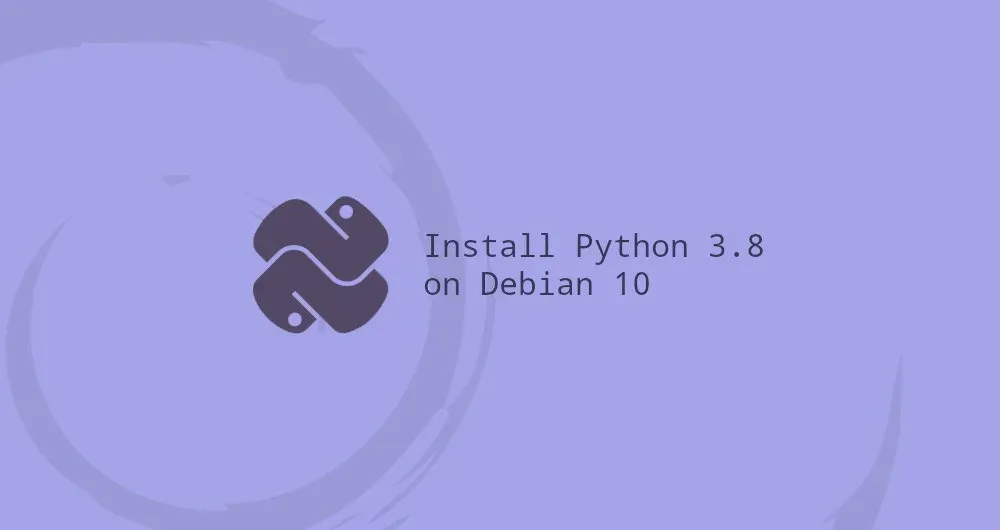Python is one of the most widely used programming languages in the world. With its simple and easy to learn syntax, Python is a popular choice for beginners and experienced developers. Python is quite a versatile programming language. It can be used to build all kinds of applications, from simple scrips to sophisticated machine learning algorithms.
Debian 10 includes Python version 3.7, which can be installed or updated using the apt tool.
At the time of writing, Python 3.8 is the latest major release of the Python language. It includes many new features such as assignment expressions, positional-only parameters, f-strings support, and more. Python 3.8 is not available in the standard Debian 10 repositories.
This tutorial covers how to install Python 3.8 on Debian 10. We’ll also show you how to create a virtual environment.
Installing Python 3.8 on Debian 10
Building Python 3.8 on Debian is a relatively straightforward process and will only take a few minutes.
- Start by installing the packages necessary to build Python source:
sudo apt update
sudo apt install build-essential zlib1g-dev libncurses5-dev libgdbm-dev libnss3-dev libssl-dev libsqlite3-dev libreadline-dev libffi-dev curl libbz2-dev
- Download the latest release’s source code from the
Python download pagewith wget orcurl. At the time of writing this article, the latest release is3.8.2:
curl -O https://www.python.org/ftp/python/3.8.2/Python-3.8.2.tar.xz
- When the download is complete, extract the tarball:
tar -xf Python-3.8.2.tar.xz
- Navigate to the Python source directory and run the
configurescript:
cd Python-3.8.2
./configure --enable-optimizations
- The script performs a number of checks to make sure all of the dependencies on your system are present. The
--enable-optimizationsoption will optimize the Python binary by running multiple tests, which will make the build process slower. - Run
maketo start the build process:
make -j 4
- Modify the
-jto correspond to the number of cores in your processor. You can find the number by typingnproc. - Once the build is done, install the Python binaries by running the following command as a user with sudo access:
sudo make altinstall
- Do not use the standard
make installas it will overwrite the default systempython3binary. - At this point, Python 3.8 is installed on your Debian system and ready to be used. You can verify it by typing:
python3.8 --version
Python 3.8.2
#debian 10 #python
